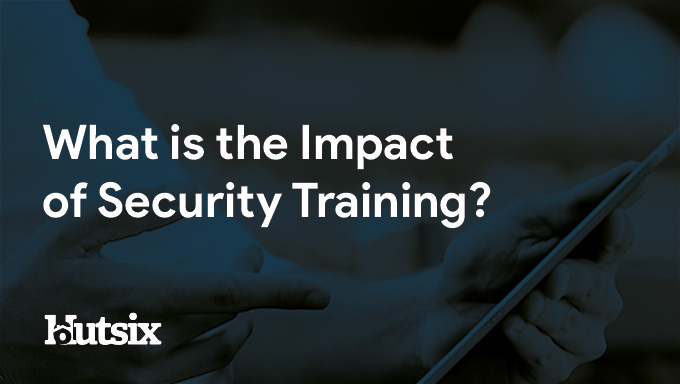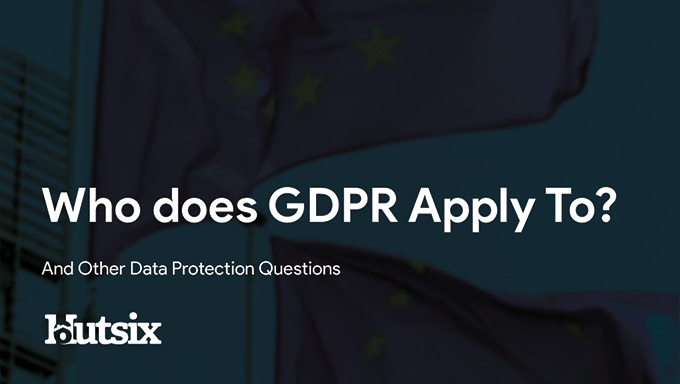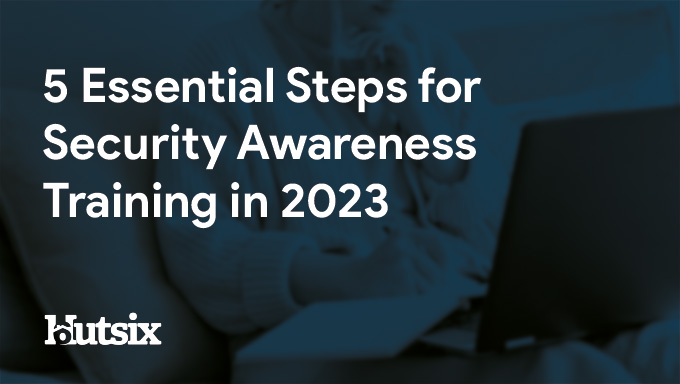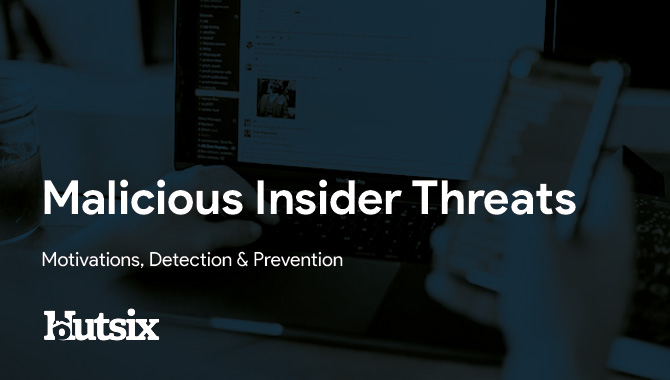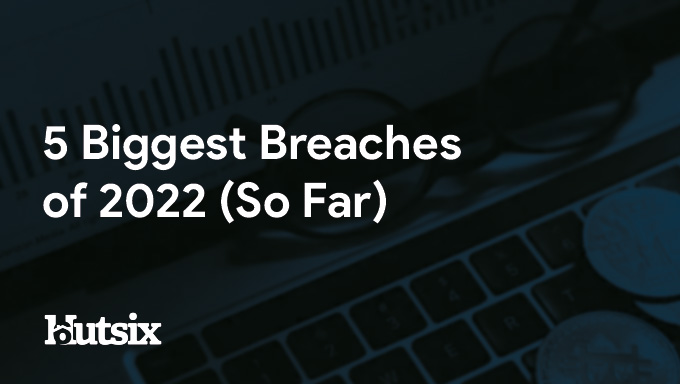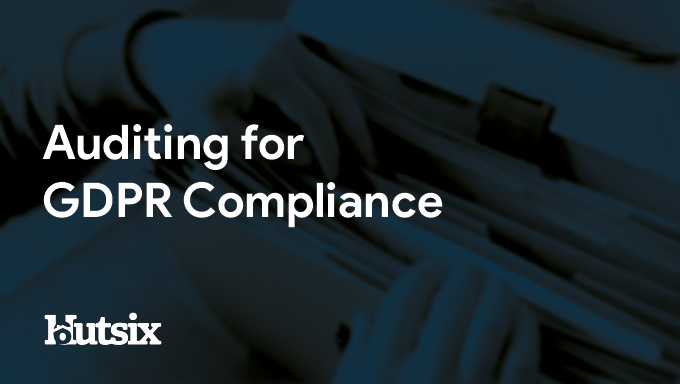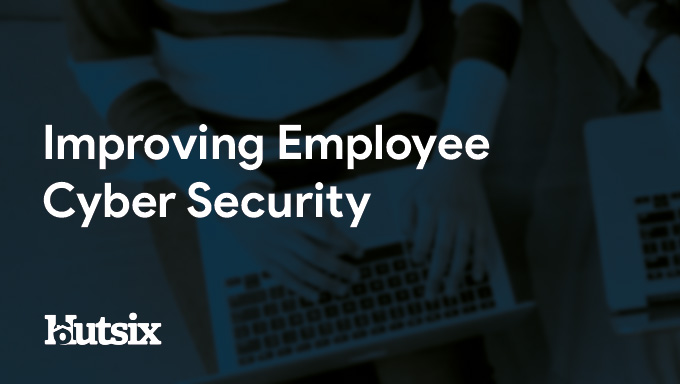Why Every UK SME Needs Ongoing Security Awareness Training for Employees
Cyber-attacks are something that happen to big companies, right? Global banks, government agencies, maybe a tech giant or two. But your small business? Probably not on a hacker's radar.
Here's the thing, it is. In fact, more than half of UK SMEs have reported some form of cyber-attack in the past year, with phishing and business email compromise topping the list. Why? Because criminals know that small businesses often lack the resources, time, and internal expertise to defend themselves properly.
That's where security awareness training for employees becomes more than just a good idea. It's your frontline defence. This article will break down why ongoing training matters, what happens when you skip it, and how it helps your team spot threats before they become disasters.
Why SMEs Are Prime Targets
Small, But Not Invisible
You might think being a small fish in a big pond makes you safe. But to a cyber criminal, you're an easy win. Less red tape, fewer security layers, and usually no dedicated IT team standing in the way.
SMEs are attractive precisely because they're stretched thin. Attackers know this. They use tools like phishing emails, fake login pages, or even spoofed supplier invoices to slip through the cracks, and they don't need much to make it worth their while.
Think about it: if you're sending invoices, processing payments, or handling customer data, you're already holding valuable targets. You're not off the radar, you're on the shortlist.
The Cost of Getting It Wrong
A single mistake can cost thousands. From ransomware attacks that lock up your files, to employees accidentally clicking on a fake email, the damage adds up fast. And it's not just money. Downtime, reputation loss, and regulatory fines all hit hard, especially when you don't have a crisis team on standby.
That's why SME cyber security training in the UK isn't optional. It's a practical step to stop problems before they start. And at the heart of it? Your employees. With the right employee cyber security training, they're not just part of the risk, they're part of the solution.
Read More: Cybersecurity Awareness for UK SMEs
Human Error: The Risk Hiding in Plain Sight
It's Not Just Tech, It's People
We spend a lot of time talking about firewalls, antivirus tools, and multi-factor authentication, and sure, they matter. But most cyber incidents don't start with a system failure. They start with a person.
One person. One click. One moment of distraction.
It could be someone clicking a fake invoice. Reusing a weak password across tools. Forwarding a dodgy email to the wrong contact. These aren't tech problems. They're human habits, and they're totally fixable.
Click Regret: The Aftermath of a Phish
Ever had that sinking feeling after clicking something you shouldn't have? Maybe it looked legitimate. Maybe it just caught you off guard. That's what attackers count on, speed, pressure, and lack of training.
The good news? Security awareness training for employees tackles this head-on. It gives your team the confidence to pause, question, and act smart. And the more often they practise spotting these threats, the sharper they get.
In short, cyber security awareness in the UK isn't just about ticking boxes. It's about changing behaviour. And when behaviour changes, so does your risk.
One-Off Training Isn't Enough, Here's Why
What Did We Learn Last Year? No One Knows.
You've probably seen it before, the annual "cyber security refresher." A few slides, maybe a quiz, then silence for another twelve months. Job done?
Not quite. Most people forget 70% of what they learn within a day, and that number only gets worse over time. A one-off session might tick a box, but it won't build good habits.
Cyber threats evolve constantly. So should your training.
Security Is a Habit, Not a Headline
Think of it like brushing your teeth. You wouldn't skip a year and expect no cavities, right? Same goes for security. The goal isn't one-time awareness, it's long-term behavioural change.
That's where ongoing security training makes the difference. Small, regular sessions keep people engaged without overwhelming them. It becomes part of how they work, not just something they have to do.
Hut Six delivers short, story-based modules that fit neatly into busy schedules. And with fresh content released across multiple "seasons," employees actually look forward to what's next. Imagine that, security training people don't hate.
So, when you ask, "How often should employees do security awareness training?", the answer is simple: more than once, and regularly enough to make it stick.
Compliance Isn't Optional, and Training Helps
Ticking Boxes Won't Save You
Compliance can feel like a chore, we get it. GDPR, ISO 27001, SOC 2... it's a lot to keep track of, especially when you're running a tight ship. But ignoring it isn't an option. One breach, one mistake, and suddenly you're facing fines, investigations, or worse, a total loss of trust.
The good news? Security awareness training is one of the simplest ways to support compliance. It shows you're making an active effort to protect data and reduce risk, which is exactly what regulators want to see.
GDPR, ISO 27001, SOC 2, What Do They All Want?
Let's break it down. These frameworks all ask similar questions:
- Are your employees trained to handle data safely?
- Do you have ongoing processes for managing human risk?
- Can you show you've taken reasonable steps to protect information?
With regular training, the answer becomes "yes." And with GDPR compliance training in the UK from a trusted provider like Hut Six, you're not just checking a box, you're building real accountability into your organisation.
Plus, Hut Six offers audit-friendly reporting and customisable content, making it easier to align with whatever standards you're working toward. No extra stress. No nasty surprises.
Read More: Top 10 Tips for Effective Online Security Awareness Training
What "Good" Security Awareness Training Looks Like
Short, Realistic, and Actually Worth Watching
Let's be honest, most training is dull. Long videos, corporate jargon, recycled content from ten years ago. It's no wonder people tune out.
Great training isn't like that. It's short, engaging, and relevant. It uses real-world scenarios that feel familiar, even uncomfortable at times. It invites people to make choices and see the consequences. That's what makes it stick.
At Hut Six, each module takes around five to ten minutes. They're interactive, story-driven, and updated every year. Employees learn by doing, not just watching. And because the content reflects real UK threats and workplace culture, it feels real.
Phishing Simulators That Teach, Not Punish
Nobody wants to be caught out. But let's face it, phishing happens, even to the best of us. That's why the best simulators don't just test people, they teach them.
The Hut Six phishing simulator runs automated, ethical campaigns. When someone clicks, they don't get named and shamed. They get a short, tailored lesson that explains what went wrong, right at the moment it matters.
It's this point-in-time approach that turns mistakes into learning opportunities. Over time, your people become sharper, more confident, and less likely to fall for the real thing.
Security training shouldn't feel like a punishment. Done well, it's empowering, and even a little bit fun.
Read More: Why Phishing Simulations Still Work
Here's what it all comes down to, your people are your first line of defence. And like anything that matters, they need support, not just instructions.
Cyber threats won't wait for your team to "get it" eventually. They're happening every day, to businesses just like yours. But with regular, realistic training, your employees can spot the signs, break bad habits, and act with confidence.
That's the power of ongoing security awareness training for employees. It strengthens your culture, protects your data, and helps you meet the standards you're held to, without overwhelming your team.
If you're ready to start building a smarter, safer workplace, explore the Hut Six platform. You can book a free demo, dive into the content, or try it out, no pressure, no card required.
Security isn't about fear. It's about being ready.
Security Awareness for your Organisation
Enjoyed our blog? Learn more about how Hut Six can help improve you security awareness with training and simulated phishing. Start a free trial now, or book a meeting with one of our experts.
Featured
What is the Impact of Security Awareness Training? - Hut Six
Discover the Impact of Security Awareness Training: Prevent breaches, foster culture, & build trust.
What is Personal Data?
Learn about personal data, its types, and significance in data protection. Explore general and special category data, as well as pseudonymised and anonymised data under the GDPR.
Who Does GDPR Apply To?
Who Does GDPR Apply To? And Other Data Protection Questions/ Information Security blog by Information security awareness provider Hut Six Security.
Does ChatGPT Pose a Cybersecurity Risk
In this blog post, we explore whether AI chatbots like ChatGPT pose a cybersecurity risk. We delve into the potential vulnerabilities and threats posed by chatbots, and discuss measures that can be taken to mitigate these risks. Read on to discover how you can ensure the security of your organisation's chatbot interactions.
How Do I Get Cyber Essentials Certified?
Learn how to obtain Cyber Essentials certification and enhance your organization's cybersecurity posture with our comprehensive guide. Our expert insights will help you navigate the certification process to meet the requirements for Cyber Essentials.
Essential Steps for Security Awareness Training
Starting a security awareness training campaign? Here are 5 essential steps to help ensure information security success.
Malicious Insider Threats - Meaning & Examples
Malicious insider threats can cause massive problems. Here we examine some of the motivations behind attacks and methods of detection organisations can use to reduce risk.
5 Biggest Breaches of 2022 (So Far)
Five of the biggest and most significant data breaches, hacks, and information security attacks of 2022 (so far).
Auditing for GDPR Compliance
Questions to consider when auditing your business or SME for General Data Protection Regulation (GDPR) compliance.
Improving Employee Cyber Security
With human error responsible for many breaches and attacks, we offer some helpful areas for improving employee security compliance.



